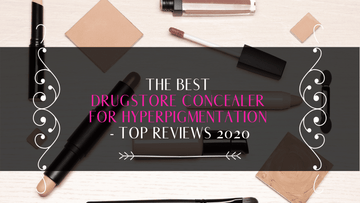
When it comes to our hygiene rituals, we often follow a certain routine; it's part of our creature comforts and what makes us feel fresh and clean. But when it comes to showering with glasses - that's a different story. Many of us don't give it a second thought, while others are convinced of a certain way to do it, each with their own unique logic. So, what's right? Are you meant to shower with your glasses on or off?
So in this Womensok.com article, we have discussed this perplexing quandary, examining the ins and outs of showering with glasses. We're here to clear up the air of confusion and lay down the facts - to give you the most comfortable and clean shower experience with your glasses.

Is it OK to get glasses wet?

At its most basic, glasses featuring a standard plastic or glass lens put little risk in getting wet. Usually, it’s better to take them off and avoid any fogging when showering as this might interfere with vision.
On the other hand, specialty glasses with coatings, such as anti-reflective or ultraviolet, must not get wet.
Here’s why:
- Any sort of moisture might mess up the delicate coating and make it ineffective.
- The same goes for lenses featuring low-permeable, scratch-resistant and anti-fogging coatings. If these come into contact with water, their abilities may become compromised.
- Also, keep in mind that steam can be just as damaging as water.
At the end of the day, it’s recommended to take your specs off before showering. If you really want to wash with glasses on, be mindful to not let them come into contact with any water.
How do you wear glasses in water?

If your glasses are waterproof, then you may be able to keep them on while you shower as long as you remember to rinse them off with clean water every now and then.
If your glasses aren't waterproof, then you should definitely take them off before taking a shower. Not only could they be damaged by the steam and heat, but they could also be hurt if they get splashed with water and soap.
It's also important to remember to protect your glasses from the elements when you're not in the shower. Make sure to take them off when it's extremely hot, cold, or windy outside, and keep them safe from all sorts of accidents that could happen, from being stepped on to taking a tumble off the dresser.
Can you take a shower with lenses on?
Most optometrists – and many manufacturers of contact lenses and glasses - recommend taking lenses off before showering. Doing so helps to reduce the risk of bacteria and germs getting onto your lenses and potentially into your eyes.
Of course, if you take showers, you may not be able to avoid getting some water on your lenses, and the occasional splashing is unlikely to damage your lenses.
If you are someone who wears contact lenses and wish to shower with them on for convenience’s sake, there are a few ways you can make it safer.
- Wear a pair of goggles in the shower to keep your lenses from getting directly splashed.
- You should also use certified contact lens cleaning solutions and take your lenses off before entering the shower, and clean them thoroughly first.
- To be extra-safe, you should also replace your lenses on a regular basis, even if you’re not in the habit of showering with them on.
In general, with the proper precautions, it is possible to take the occasional shower with lenses on.
Glasses to wear in the shower

These glasses are typically treated with an anti-fog coating and offer superior clarity when used in a steamy environment. Some come with rubberized nose pads and adjustable ear stems, allowing you to find a comfortable fit while in the shower.
You can also find swimming goggles designed to keep water from fogging up the lenses. These goggles are ideal for underwater activities or a shower, and many come with cushioned eye sockets in order to maximize comfort.
And for those who just want to wear their regular glasses in the shower, there are some safety tips to follow, which are the following:
- Firstly, wash the glasses and frames with warm water and mild soap. This will help keep the lenses and frames clean and reduce the chance of scratching during shower use.
- Secondly, use a towel to gently dry the lenses and frames after you’ve used them.
- Lastly, apply a few drops of a anti-fog solution to the lenses beforehand which can help a lot in keeping them from fogging up.
Overall, it is possible to shower with your glasses on but for safety reasons, you might want to consider getting a pair of specialized glasses for shower use or wearing goggles when necessary.
Does water damage glasses?

Water can damage your glasses if you're not careful. When showering with them, try to keep them away from direct contact with the water.
Hot water can soften lenses, potentially distorting their shape and the clarity of the vision they provide. Over time, with repeated exposures, showering with glasses can weaken the lenses, causing them to fade, crack, or even warp.
Are there anti fog glasses?

Plenty of eyeglass brands now offer anti fog lenses and coatings to help keep your lenses clear and prevent them from fogging up. Many of these options are readily available and fairly affordable too.
The best part about owning a pair of anti fog glasses is that they will be completely safe to use while showering, allowing you to see without worry. This also means you won't have to keep taking them off and then putting them back on, which can often lead to scratches and damage over time.
Anti fog glasses are a must have item to purchase, allowing you to see clearly and comfortably in the shower without having to worry about taking them off and putting them back on.
So the next time you shower, make sure you invest in a pair of anti fog glasses and you’ll never have to worry about having to shower with your glasses off again!
Is it safe to wear glasses in the water?

The answer depends on a few factors, the most important one being the type of material the frame is made from. You should avoid using soap and shampoo on plastic glasses, as it might damage or discolor it.
Also, you should protect them from sudden changes of temperature and humidity, as that could affect their shape and integrity. Apart from that, you might want to invest in a good pair of anti-fog and waterproof lenses to prevent eye irritation and blurred vision.
This way you can feel secure and comfortable when wearing your glasses during your shower. Basically,it’s safe to wear your glasses in the water as long as you take good care of them.
Just make sure you’re aware of the material your frames and lenses are made of and you’ve got the right accessories to protect them and your eyes.
Does anti-fog coating on glasses work?

Anti-fog coating can help reduce the accumulation of moisture on eyeglasses lenses while showering. The anti-fogging treatments often use hydrophobic and oleophobic compounds that can be applied to your lenses before or after buying them.
This helps to prevent fogging by repelling water and oil molecules, creating a hydrophobic layer on the lens surface. While anti-fog coating can help prevent fogging, it isn’t still a complete solution and fogging can still happen especially in high-humidity environments.
It’s important to note that the longevity of the coating effects can vary based on how often the glasses are cleaned, so it’s important to take good care of your eyeglasses in order to extend the life of the coatings. It’s also worth noting that anti-fog coating doesn’t work if you don’t put your glasses on properly.
The water droplets from the shower need a channel to get off the lenses which only happens when you pinch the frames around your temples. Basically, anti-fog coating can be a great way to prevent fogging on your lenses while showering and is worth looking into if you wear glasses and take regular showers.
Conclusion
In conclusion, whether or not you should shower with your glasses on or off is a decision that’s really up to you. It’s important to keep an eye out for fog accumulation, as it can hinder your vision and cause irritation.
You may need to experiment and find out what works best for you. Some opt to take them off, giving their eyes a break—while others find that a snug pair of glasses actually lessens fog formation. Ultimately, it’s a case-by-case basis as we all have different pairs and we all react differently to normal activities.




